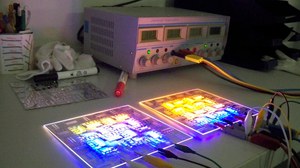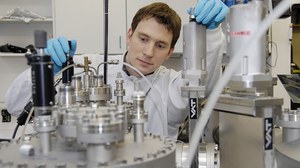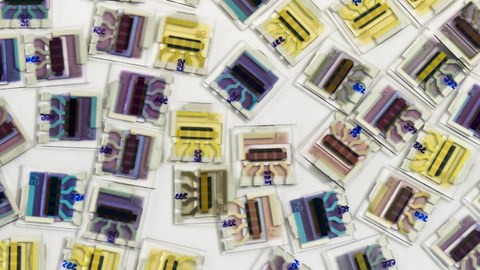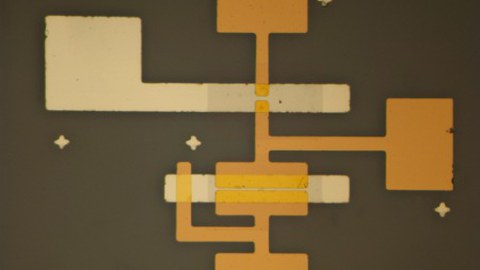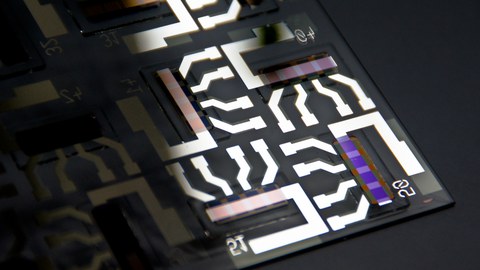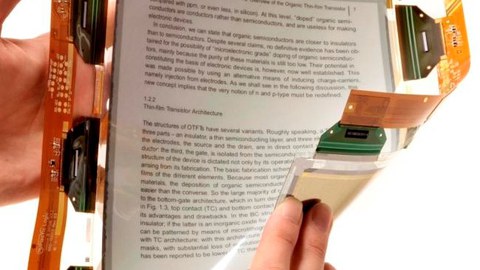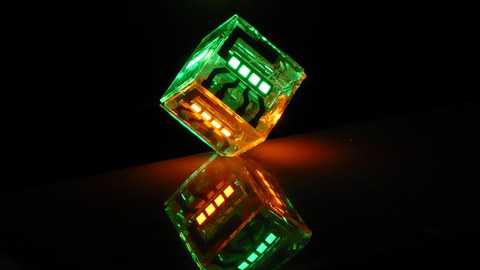Research Focus
The research focus of the Chair of "Optoelectronics" are the basic physical characteristics and the device applications of organic semiconductors. We examine the fundamental electronic properties of these materials by spectroscopic studies and measurements of the transport properties. For applications, novel organic lasers and transistors are the focus. Further information can be found here ...
 © Philipp Lindenau/IAPP
© Philipp Lindenau/IAPP
Organic Electronics
Organic electronics and organic semiconductors are key technologies in the field of microelectronics. With their help, large-area, flexible, semi-transparent, very thin and extremely energy-efficient products can be realized. Due to the low use of materials (only a few grams per square meter) and the established production methods, low production costs can also be expected. Organic chemistry, with its billions of molecules that can be synthesized, offers the possibility of finding the right materials for every application.
Organic photodetectors and solar cells generate electricity from light and are used to measure light intensity and wavelength or to generate energy. Organic lasers are lasers based on organic semiconductors. Organic semiconductor-components such as transistors, diodes and triodes allow the construction of circuits that offer application scenarios beyond the established silicon-based technology.
Organic components are only a few hundred nanometers thick. They consist of several layers that are evaporated on the IAPP in a vacuum. This production method is also established on an industrial scale. An essential component for the success of organic electronics is the possibility of doping layers with small molecules. At the IAPP, this method, established in conventional semiconductor technology, was successfully implemented for the first time for organic structures. It forms the basis for the p-i-n concept for the construction of organic semiconductors.

